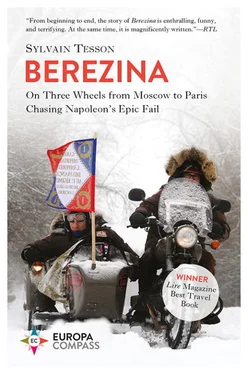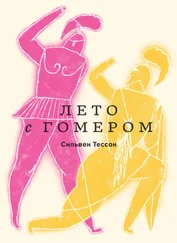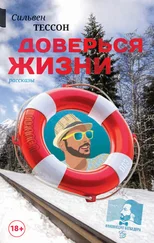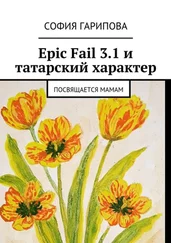We were making good progress toward Marijampolė. Our machines seemed delighted with the icy evening air. These were the forests at the start of the European Union. Everything looked tidier than in the ex-Soyuz. The road cut through images of Brueghel countryside. A man with a chapka on his head went by on a bicycle. A cart hitched up to a bay horse was carrying peasants to farmhouses covered with shingled roofs that came down to the ground. We went through hamlets. We guessed that wood stoves were pulling in full. Poor Lithuania, that had suffered so much, was smoking happily now that History had gone to bed. The sun set and the countryside turned into a Viennese cake, pink and fat.
What the hell had Vassily eaten? He was darting into the night. We left Marijampolė behind us, and drove at a hundred and twelve miles an hour. A few hours later, we were on the Polish border. Complete with sodium projectors lighting the snow, and awnings with Cło! and Postój! stamped on them, their installations maintained a Cold War feel about them. We weren’t even entitled to a glance on the part of the customs officer.
“This is becoming annoying,” Vitaly said.
Vassily wanted to drive even faster. I struggled like mad to keep up with him in the fast-forming fog. The road snaked and all the former Eastern Bloc trucks seemed to have agreed to gather in this section of Masuria. I dreaded the right turns, which were likely to lift the sidecar and capsize the bike. It started snowing more heavily and got the better of Vassily’s rage. We stopped off in a timber inn by the roadside, in Augustów, the very same town through which Caulaincourt and the Emperor traveled two hundred years earlier to the day.
“To the day? Thomas asked at the inn.
“Yes,” I said, “they arrived in Warsaw on the 10th, and were in Marijampolė on the 7th, so they went through Masuria and Podlachia on December 8th and 9th, and today is the 8th, so they clearly stopped off in Augustów.”
Sensitive to symbols, Goisque couldn’t get over the coincidence and wanted to check this in the oil-stained copy of Caulaincourt’s Memoirs .
“Show me, Tesson, I don’t believe you.”
I quoted Napoleon speaking to Caulaincourt, “Goisque, when I tell you something, you must believe it.”
DAY SEVEN.
FROM AUGUSTÓW TO WARSAW
Where did they go through? This was now our concern.
“Caulaincourt mentions the village of Pułtusk, between Augustów and Warsaw,” I said.
“Off to Pułtusk then!” Vassily screamed.
Our friends were remarkably low maintenance.
This morning, the cold was digging its heels in. The road ran perfectly straight. The horizon was resting in a rectilinear position. The plain was at the disposal of the winds. Bunches of frosted gorse, groves of silver birches, marshes: the Mazovia triptych. These unobstructed expanses made perfect battlefields. Or rather spaces for cavalry maneuvers. In the 20th century, Panzers and T-34s used them to their hearts’ content. The whole landscape had been exhausted by it. Empty stork’s nests on top of pylons added to the feeling of abandonment. There wasn’t a figure in the villages: humanity had run away to huddle by the stoves. A very Catholic Poland ran beneath our wheels: disproportionately large cathedrals in the smallest hamlets. There were almost as many Virgin statues and wayside crosses as milestones.
Since contemplating the landscape was only relatively entertaining, I let the following question spin inside my helmet: Napoleon—a tyrant or a liberator?
If the Revolution boils down to an enterprise of struggling for freedom, then Napoleon is the gravedigger of the principles of 1789. His anti-parliamentary government, his authoritarianism, his belligerent imperialism make him akin to Caesar. However, if the Revolution is defined as a fight for equality, then the Emperor was its most ardent champion. Civil equality was his technical achievement. Equality of merit, his moral obsession. In which other era in the History of France did a butcher’s assistant have this much chance of becoming a general thanks to his talent? The ideal of heroism irrigated the beginnings of the Empire. These marshals, glowing in the imperial dawn, insulted the privileges of the Old Regime with more insolence than the butchers of the Terror.
It was strange to see these 21st-century top bureaucrats, mired in cronyism, rambling on against Le Mal Napoleonien [8] Title of Lionel Jospin’s brilliant (but debatable) book (Paris, Le Seuil, 2014), who shares with the Emperor the fact that he failed at a campaign.
without admitting that the Emperor had managed to give civil and administrative form to the abstract impulse of the Enlightenment. One of our former Prime Ministers had distinguished himself by his critique of the Imperial adventure. He suggested that the balance sheet of 1815 was terrible: the abdication had heralded the return of reactionary monarchies, freedoms had taken a step back in France, and the country was emerging weak from a military adventure that had cost millions of human lives.
Caulaincourt’s words, scribbled under his fur-lined cloak, kept coming back to me. “The Emperor wished for the way to be open to merit, for the means to achieve without a distinction of caste, without needing to be the relative or friend of a well-placed man or of a royal mistress.” Also, “Any soldier being able to become a general, a baron, a duke, a marshal; the son of a peasant, of a school master, of a lawyer, of a mayor, a government counsellor, a minister, a duke, and this nobility would, in time, not shock anyone because it would reward everyone without distinction.” While rows of trees, painfully planted on the side of the road, paraded by, I found it ironic that the man professing such things should be disowned under our republic by one of those self-proclaimed socialists who had, however, lost the public’s favor.
We stopped off at service stations to revive our frozen hands and rub our kneecaps, which had been exposed directly to the wind. We had ended up wrapping them in newspapers, woolen balacklavas, and fabric muffs held together with Scotch tape. We each wore two pairs of socks, a pair of leather boots, and waterproof boot covers over which we also had a complete bodysuit. The result of this layering: we were still cold and it took us ten minutes to take a leak.
Warsaw was drawing nearer, and the temperature dropping. Wrapped up in his furs, Goisque looked increasingly like an old lady.
“Goisque!”
“What?”
“You look like an old lady.”
“What’s that?”
And a deaf old lady at that! I thought inside my helmet.
In the afternoon, we crossed the Vistula over a bridge, entered Warsaw, and switched off our engines in Uprising Square. It had been called Napoleon Square until the end of World War II. A few months before our arrival, in 2011, a bust of Napoleon on a ten-foot pedestal had been unveiled. Poland was saluting the man who, in 1807, had created the Grand Duchy of Warsaw and equipped it with a civil code that is still in force. We had saved two Partagas cigars for the occasion, and smoked them in the sidecars, and saw that the smoke matched the gray tones of Warsaw’s architecture.
On Napoleon’s chess board, Poland represented a weapon against Alexander. The Tsar was wary of the Grand Duchy’s uprising. Coming back after the Russian disaster, Napoleon’s objective was to persuade the European nations that Russia was the common enemy, and that war had to be waged against her “in the aptly-calculated interest of Old Europe and civilization.” To start with, the Poles had to be put into “a kind of drunken state.” Only the crazy pace of his return did not give him the time to “electrify the Poles,” who, in addition, were freezing their butts off, ruined by their contribution to the war effort. Napoleon spent only a short day in the capital and, at 9 P.M., jumped into the sleigh.
Читать дальше












